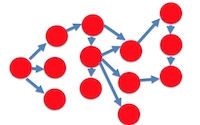
Virtual Collaborative Learning Using Wiki for Adult ODL Learners: The Case of Wawasan Open University
Virtual collaborative learning has been gaining in popularity in open and distance learning (ODL) over the last decade. In collaborative learning environments, the instructors facilitate and initiate discussion on particular issues of concern. Students are given the chance to share their knowledge in a way they have not been used to and the possibility of […]













